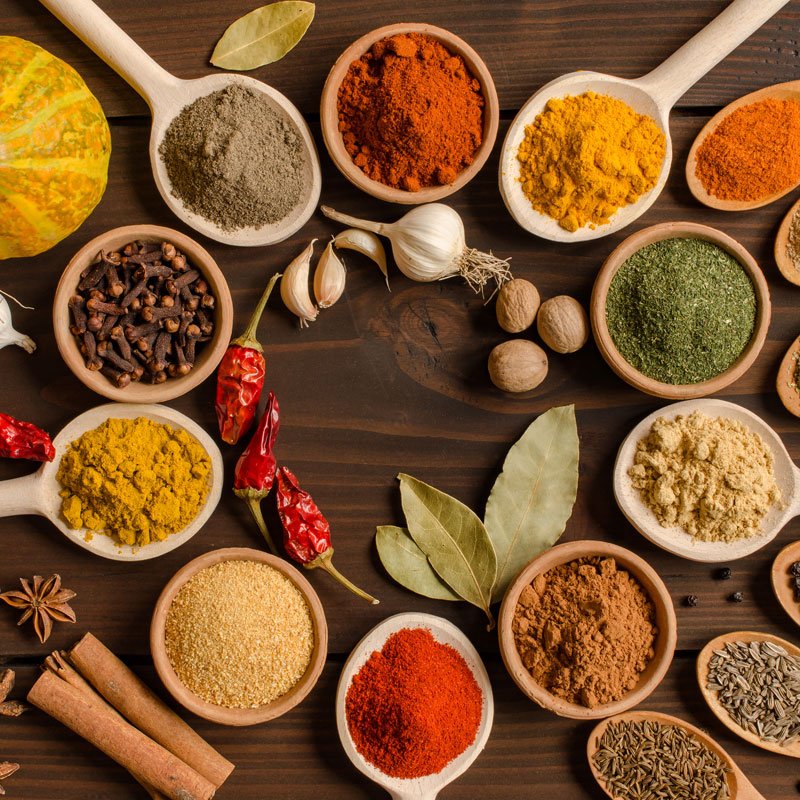
Basic Kitchen Tips for Indian Recipes
Indian cuisine is known for its diverse flavor, culture, and creativity. It contains a good mixture of spices, techniques, and tradition that has passed down through countless generations.

Not just a place to cook rather it is the place where memories are made, laughter bubbles like simmering curries, and love is beautifully served on every plate. Each recipe carries a story or importance, from the street foods of crowded markets to meals shared at the family or friends’ gatherings. Sometimes, excelling the art of Indian cooking can feel overwhelming, especially with busy schedule.
That’s where knowing essential kitchen tips can truly make your kitchen experience more enjoyable and stress free.
In this blog, we will explore the basic kitchen tips used in Indian recipes, from saving time during the morning rush with clever breakfast ideas to mastering quick and flavorful dinner ideas after a long day, these tips will not only help you cook more efficiently but also enhance the taste of every dish you create.
1. Master the Art of Masalas
Masalas are the heart of Indian recipes and works as a magician in every meal. Mastering Masala is one of the most important kitchen tip that can truly transforms your cooking from ordinary to unforgettable experience. Masalas (spice blends) form the flavor base of most Indian dishes. Here are some tips of how you can level up your masala game:

- Try to roast and grind your own masalas at home whenever possible. Homely grinded spices release stronger, more authentic flavors than store-bought ones.
- Prefer to store spices in airtight containers away from moisture, sunlight, and heat. This helps to retain their aroma and shelf life.
- To Prepare small batches of garam masala will keep the blend fresh and potent. Avoid making it in bulk as it may lose its flavor over time.
2. Prep in Advance for a Smooth Cooking Experience
Meal prep is a game changer in Indian cooking where dishes often require multiple steps. A little planning before cooking the meal will always reduce your hassle or stress, while making it memorable.
- Prepare a weekly batch of ginger-garlic paste—a staple in most Indian gravies and curries. Store it in the fridge or freezer for convenience.
- Chop the vegetables such as onions, tomatoes, green chilies, and coriander leaves ahead of time and store them in airtight containers.
- Soak rajma or Chana overnight to reduce cooking time and enhance texture.
3. Choose the Right Cookware

Are you thinking about investing in the right cookware? Well, it is one of the smartest kitchen tips for every home chef. The tool you use will impact on how your food turns out. Using the right cookware improves the texture and flavor of your food. It also saves your time and effort. Therefore, Indian recipes require specific cookware for optimal results. Here is guide to essential cookware for Indian recipes and why they matter:
- Using a pressure cookers for meals like dal, rajma, and mutton curry because they cook food quickly and preserve nutrients.
- Opt for a heavy-bottomed kadhai (wok) is ideal for frying, sautéing, and preparing thick curries. It distributes heat evenly and prevents burning.
- Non-stick pans are perfect for breakfast ideas like dosas, uttapams, and cheelas, as they require less oil and are easy to clean.
4. Temper Like a Pro (Tadka Technique)
Tadka is also known as tempering. It is a traditional Indian method of flavoring hot oil with spices before adding it to a dish. Meal feels incomplete without Tadka. It’s a simple yet powerful method to enhance taste instantly.
Here’s how you perfect your tadka:
- Heat the oil well, then add whole spices like mustard seeds, cumin, or hing until they changed their color.
- Add fresh curry leaves, dry red chilies, and garlic, depending on the dish you’re making.
- To avoid burning the spices, try to control the heat carefully temper on medium flame.
Tadka can make or break the flavor of a dish. One must know the most basic kitchen tips in Indian cuisine before preparing it.
5. Don’t Overcook Vegetables
Vegetables are cooked in Indian dishes should be tender but not mushy while perfectly cooked from the inside. Overcooking the vegetables results in loss of nutrients and bland texture.
Here are some tips that needs to be considered while cooking the vegetables:
- Always cook on medium flame and cover with a lid to retain moisture.
- Avoid over-stirring soft veggies like okra or brinjal—they lose shape quickly.
- Steam instead of boiling whenever possible to retain nutrition and color.
Among all kitchen tips, learning when to stop cooking is the secret to delicious, wholesome meals.
6. Balance Your Flavors
Balancing spicy, tangy, salty, and sweet notes that are the cornerstone of Indian cuisine. This will help to achieve the flavor harmony which requires right ingredients at the right time. This balance brings depth and richness to every dish. Here are some useful tips to balance flavors effectively:
- Add lemon juice or amchur powder for a tangy kick.
- Use yogurt or coconut milk to mellow down the heat in overly spicy dishes.
- Add a pinch of sugar or jaggery to counteract bitterness, especially in leafy greens or kadhi.
7. Easy Breakfast Ideas for Busy Mornings
Mornings can be hectic and feels like a race against the clock, especially when you are a working professionals, or parents. With the little planning and right breakfast ideas, you can prepare healthy yet satisfied meals in minutes. Here are some quick and nutritious breakfast options:
- Vegetable Upma: Made from semolina and veggies; filling and easy to digest.
- Poha with peanuts and lemon: A light yet flavorful Maharashtrian breakfast.
- Besan Cheela: A savory pancake made with chickpea flour and veggies.
- Idli or Dosa with chutney: Great make-ahead option using fermented batter.
Pro tip: Pre-cut vegetables and keep dosa batter ready in the fridge to save time. These smart kitchen tips help you start your day right.
8. Simple Dinner Ideas When You feel Tired
After a long, hectic day or returning from a work shift, the last thing you want is to spend hours in the kitchen. You need meals that are quick yet satisfying. Here are a few quick and stress-free dinner ideas:
- Khichdi: A soothing one-pot meal of rice and lentils—easy on the stomach and quick to make.
- Egg Curry: Takes less time than meat dishes but is equally filling.
- Paneer Bhurji: A scrambled paneer dishes ready in 15 minutes—pair it with chapatti or toast.
- Vegetable Pulao: Add some raita and pickle, and dinner is served.
9. Smart Storage and Leftover Tips
An efficient kitchen is not just about speed — it’s about productive kitchen. With some smart storage hacks and creative methods to use leftovers, you can save time and ingredients while keeping your meals fresh:
- Use stackable, transparent containers to store chopped ingredients for the week.
- Freeze curry bases like onion-tomato masala or palak purée for future use.
- Turn leftovers into creative meals—use sabzi in wraps, make stuffed parathas, or combine dal with rice for tikkis.
These are practical kitchen tips that every smart home cook should adopt.
10. Use Modern Tools to Save Time
No need to spend a lot of time in preparing traditional dishes. Thanks to some Modern appliances, that can help you recreate traditional recipes with less effort while maintaining the soul of the dish.
- Mixer-grinders help make chutneys, spice blends, and pastes in seconds.
- Electric cookers or Instant Pots are perfect for hands-off cooking—ideal for working professionals and also saves time.
- Vegetable choppers make meal prep faster and improve consistency in cuts. No uneven cuts.
To Master Indian cooking, you don’t have to memorize thousands of recipes. Learning the right kitchen tips, understanding ingredients properly, and organizing your kitchen smartly can help you manage the kitchen more efficiently. With basic kitchen hacks for Indian recipes, even complex dishes become manageable and enjoyable.
Level Up Your Cooking Skills at NFCI!
Love cooking and want to turn it into a career? Learn from India’s leading hospitality and culinary experts at NFCI – National Finishing and Cookery Institute. NFCI offers professional cooking courses, food production certifications, and real-world kitchen experience to help you master Indian and international cuisines.
Start your culinary journey today with NFCI!
- Expert faculty
- Hands-on training
- Government approved certifications
- 100% Placement support
To know more, call at this number: 9888011222
Share these basic kitchen tips with your friends and families!





